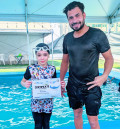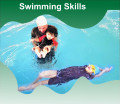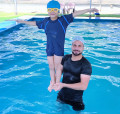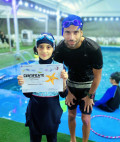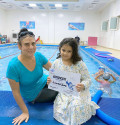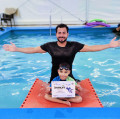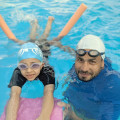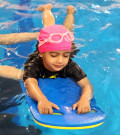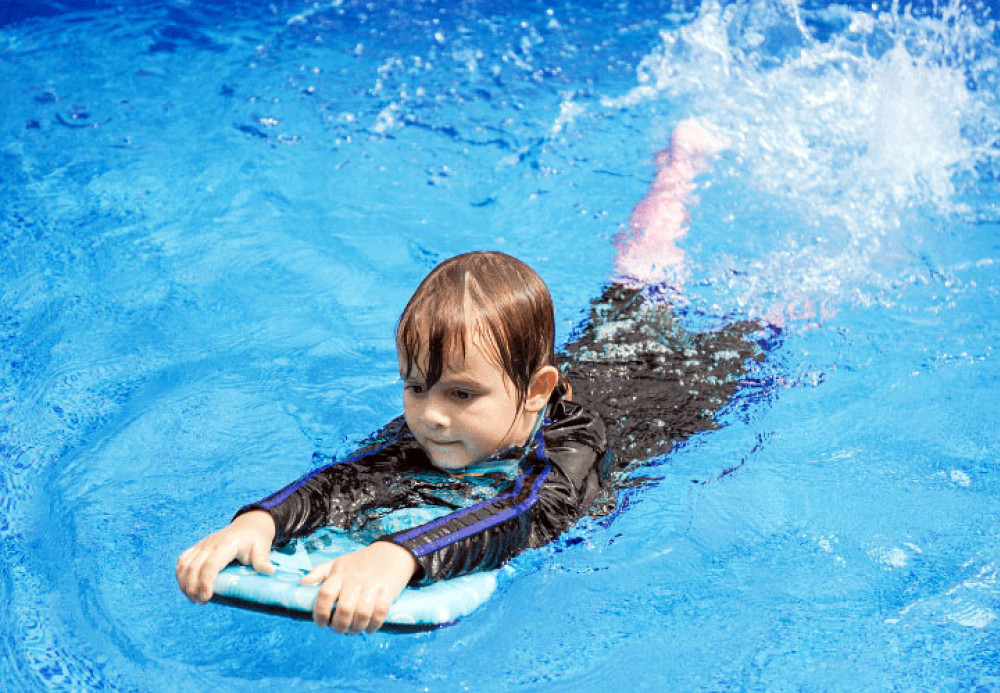
Swimming is Become the Passion of Kids if They Have Confidence
2023-11-20 - swimmingIntroduction
Confidence plays a pivotal role in the development of
children, influencing various aspects of their lives. When it comes to
activities like swimming, confidence becomes a key factor in unlocking the
potential for passion and lifelong enjoyment. In this article, we will explore
the relationship between confidence and the burgeoning passion for swimming in
kids.
The Role of Confidence in Learning to Swim
Overcoming Fear
The initial stages of learning to swim often involve
overcoming fear. Confidence serves as a powerful tool in helping children
navigate the challenges of stepping into the water for the first time.
Building Trust with Instructors
Confident kids tend to establish trust more readily with
their swimming instructors. This trust is crucial in creating a positive
learning environment and fostering a sense of security during swimming lessons.
Encouraging Perseverance
Confidence encourages perseverance, enabling children to
persist in their efforts to master swimming skills. It instills a belief that
with dedication and practice, they can overcome obstacles and become proficient
swimmers.
How Swimming Boosts Confidence
Achieving Milestones
Each swimming milestone achieved contributes to a child's
growing confidence. Whether it's floating independently or swimming a certain
distance, these accomplishments build a foundation of self-assurance.
Positive Peer Interactions
Engaging in group swimming lessons provides kids with
opportunities for positive peer interactions. Shared experiences and mutual
support contribute to a sense of belonging, boosting confidence in a social
context.
Sense of Independence
Swimming empowers children by fostering a sense of
independence. The ability to navigate the water independently instills
confidence in their capabilities, both in and out of the pool.
Building Confidence through Swimming Lessons
Qualified Instructors
Choosing swimming lessons with qualified instructors is
essential. Skilled instructors create an environment that nurtures confidence
through effective teaching methods and personalized attention.
Structured Learning Environments
Structured learning environments contribute to a child's
sense of security. Knowing what to expect during each lesson enhances
confidence, making the learning process more enjoyable.
Individualized Approaches
Recognizing and catering to each child's unique needs is
crucial. Individualized approaches to teaching swimming accommodate different
learning styles, boosting confidence by acknowledging and addressing individual
strengths and challenges.
The Impact of Confidence beyond the Pool
Academic Performance
Confidence gained through swimming often translates into
improved academic performance. The discipline and focus developed during
swimming lessons can positively influence a child's approach to learning in
other areas.
Social Skills
The social interactions inherent in swimming lessons promote
the development of valuable social skills. Confident kids tend to communicate
more effectively, fostering positive relationships with peers.
Overall Well-being
A confident child is generally more resilient and adaptable.
This resilience contributes to overall well-being, promoting a positive outlook
on challenges and a proactive approach to life.
Tips for Parents to Foster Confidence in Kids
Encouraging Positive Self-Talk
Teaching kids to engage in positive self-talk reinforces
confidence. Encourage them to replace negative thoughts with affirmations that
highlight their strengths and capabilities.
Providing Opportunities for Success
Offering opportunities for success, both in and out of the
water, reinforces a child's belief in their abilities. These successes
contribute to a growing sense of confidence.
Recognizing and Celebrating Achievements
Acknowledging and celebrating a child's achievements, no
matter how small, is vital. This positive reinforcement fosters a sense of
accomplishment and bolsters confidence.
Real-life Stories: Kids Thriving with Confidence in
Swimming
Personal Narratives
Hearing personal stories of children thriving with
confidence in swimming can inspire others. Real-life examples demonstrate the
transformative power of building confidence through swimming.
Transformative Experiences
Exploring transformative experiences of kids who initially
struggled with confidence but flourished through swimming highlights the
potential impact of this activity on a child's self-esteem.
Addressing Challenges and Fears
Common Concerns
Recognizing common concerns and fears associated with
learning to swim is essential. By addressing these issues, parents and
instructors can create a supportive environment for building confidence.
Strategies to Overcome Fear
Implementing strategies to overcome fear, such as gradual
exposure to water and positive reinforcement, can significantly contribute to a
child's confidence in the water.
Importance of Patience
Patience is key in the process of building confidence.
Allowing children to progress at their own pace fosters a sense of
accomplishment and reinforces their belief in their abilities.
The Evolution of a Passion: From Confidence to Love for
Swimming
Initial Interest
Exploring a child's initial interest in swimming provides
insights into their potential passion. Recognizing and nurturing this interest
can be the catalyst for developing a lifelong love for swimming.
Nurturing the Passion
Parents and instructors play a crucial role in nurturing a
child's passion for swimming. Creating a supportive and encouraging environment
encourages kids to explore and deepen







.jpg)























































